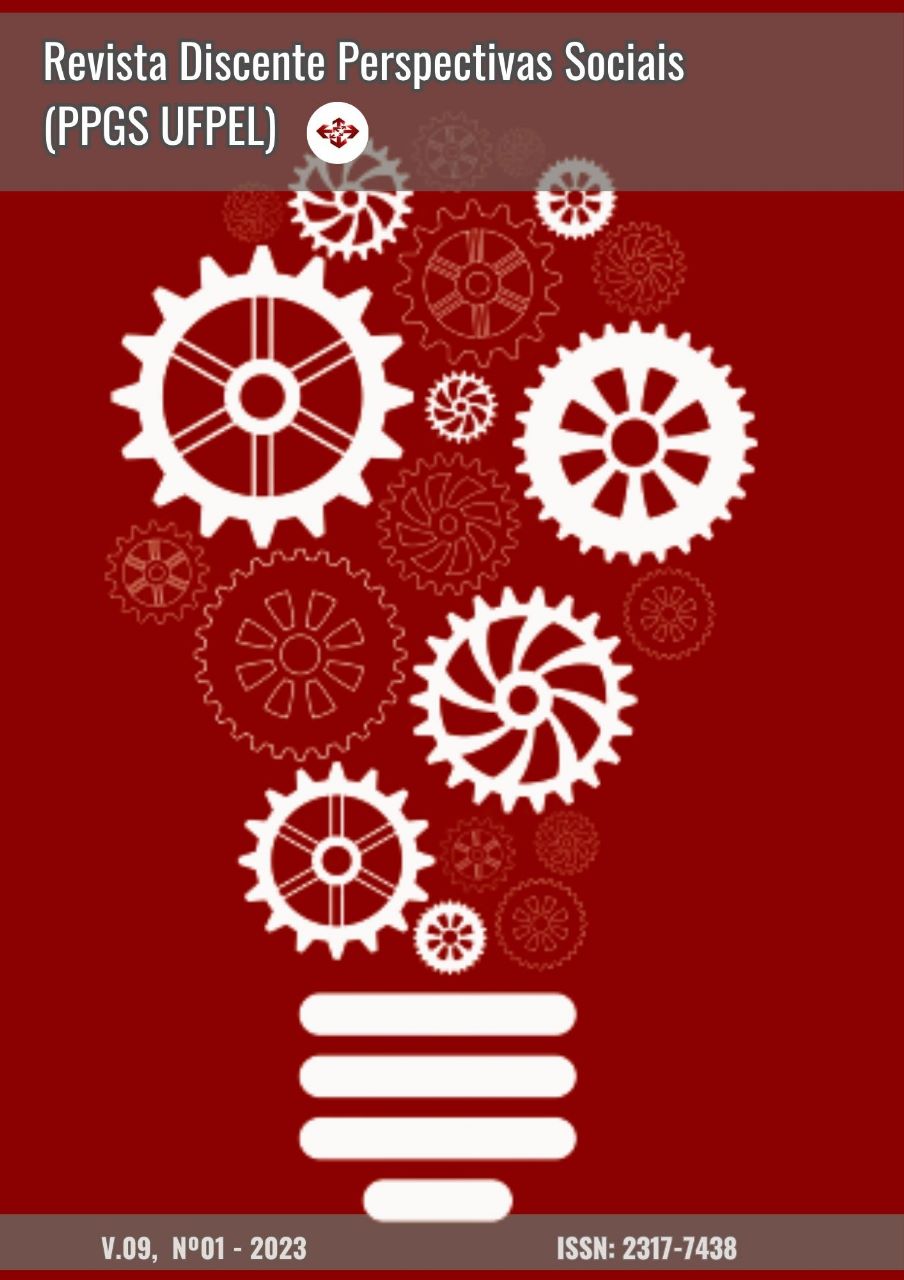STRUCTURAL VIOLENCE IN ANGOLA
Resumo
Este artigo tem como objetivo analisar a violência estrutural em curso em Angola e delinear o quadro teórico que lhe está associado. Apesar do fim da longa guerra civil e do vislumbre da paz, as ideologias do pós-Guerra Fria e dos partidos políticos mergulharam profundamente o país até agora. O governo do MPLA tem praticado a brutalidade contra a oposição e incitado a violência física e simbólica contra as etnias Bakongo e Ovimbundu. De fato, a assinatura do cessar-fogo em 2002, após a morte de Jonas Savimbi, não trouxe uma verdadeira reconciliação em Angola. Crimes de motivação política, uso excessivo de força e brutalidade, sequestro, assassinato em massa e abuso dos direitos humanos são comuns em Angola. Assim, surge a seguinte questão norteadora: Como combater a violência estrutural em Angola? A pesquisa teórica baseou-se nos conceitos de violência simbólica, de Bourdieu. Foram realizados estudos qualitativos, bibliográficos, documentais e empíricos, com coleta de dados secundários. Os resultados podem ser fundamentais na procura de soluções que promovam a reconciliação, a tolerância e a coesão social através da resolução pacífica de conflitos para o progresso de Angola e da humanidade.
Downloads
Referências
BOURDIEU, Pierre. La distinction. Critique sociale du jugement. Paris: Éditions du Minuit, 1985.
________________. Réponses, pour une anthropologie réflexive. Paris, Le Seuil, 1992.
________________. Coisas ditas. Tradução Cássia R. da Silveira e Denise Moreno Pegorim; revisão técnica Paula Montero. - São Paulo: Brasiliense, 2004.
________________. Masculine domination. Politiy Press, Cambridge 2007.
________________. On the State: Lectures at the College de France, 1989-1992. First published as Sur l'Etat. English edition by Polity Press, 2014.
BOURDIEU, Pierre; PASSERON, Jean-Claude. A Reprodução: Elementos para uma teoria do sistema de ensino. Rio de Janeiro: Francisco Alves, 1970.
GALTUNG, J. Violence, Peace and Peace Research. In V. Bufacchi (Ed.), Violence. A Philosophical Anthology (pp. 78–109). Palgrave Mac Millan, 2009.
GUIMARAES, Fernando. The Origins of the Angolan Civil War: International Politics and Domestic Political Conflict 1961-1976. The London School of Economics and Political Science, 1992.
CHROBACK, Karol. Structural violence. Vol. 13, No 42. Horyzonty Polityki, 2022.
JAMES, W. Martin. A political history of the civil war in Angola, 1974-1990. W. Martin James III. – Pbk. Ed. P. cm. With a new foreword. Routledg, Taylor and Francis Group. London and New York, 2017.
JORNAL DE ANGOLA. UNITA pretende resgatar corpos de dirigentes mortos após as eleições de 1992 (2019). Information on https://www.jornaldeangola.ao/ao/noticias/unita-pretende-resgatar-corpos-de-dirigentes-mortos-apos-as-eleicoes-de-1992/ Accessed: 11 jan. 2023.
KURIAN, George. The new book of world rankings. New York: Facts on file, 1990.
MACK, Natasha et. al. Qualitative Research Methods: A Data Collector’s Field Guide, 2005.
MALAQUIAS, A. Rebels and Robbers Violence in Post-Colonial Angola. Nordiska Afrikainstitutet, Uppsala. Printed in Sweden by Elanders Gotab AB, Stockholm, 2007.
MIGRANTS REFUGEES. Migration profile Angola (2022). Information on https://migrants-refugees.va/it/wp-content/uploads/sites/3/2022/03/2022-CP-Angola.pdf. Accessed: 14 jan. 2023.
MUCHENA, Deprose. Angola: Unlawful killings, arbitrary arrests […]. In: Amnesty International (2022). Information on https://www.amnesty.org/en/latest/news/2022/08/angola-unlawful-killings-arbitrary-arrests-and-hunger-set-election-tone/. Accessed 21 June, 2023.
QUINO, A. in: Silo Tips (2016). Xiboletismo na história recente de Angola. Information on https://silo.tips/download/xiboletismo-na-historia-recente-de-angola. Acesso: 15 jan. 2023.
SCHMIDTH, Elizabeth. Foreign Intervention in Africa from the Cold War to the War on Terror: New approach to African history. Loyola University, Maryland, 2013.
UNHCR. RefWorld. Minorities at Risk Project. Chronology for Bakongo in Angola (2004). Information on https://www.refworld.org/docid/469f3863c.html. Accessed 19 jan. 2023.
UNICEF. Country Office Annual Report 2021 Angola – (2-21)- Information on: https://www.unicef.org/media/115801/file/Angola-2021-COAR.pdf. Accessed: 10 apr. 2023
VOA ANGOLA. Voice of America Angola. Vítimas de massacre governamental de 1993 (2015). Information on: https://www.voaportugues.com/a/angola-vitimas-de-massacre-governamental-homenageadas-pela-primiera-vez/2586308.html. Accessed: 21 dez. 2022.
WORLD HEALTH ORGANIZATION (WHO). Country cooperation strategy at a glance. Information on : ccsbrief_ago_en.pdf;jsessionid=D6CD463DF66B408968DC34EF48E46212 (who.int). Accessed: 13 Apr. 2023.
ZONABEND, F. Du texte au prétexte. La monographie dans le domaine européen. Études rurales, 98-99, 33-38, 1985.
Os Direitos Autorais para artigos publicados nesta revista são do(a) autor(a), com direitos de primeira publicação para a revista. Os artigos são de uso gratuito em aplicações exclusivamente acadêmicas e educacionais e, portanto, não-comerciais.
DECLARAÇÃO DE RESPONSABILIDADE E DE AUTORIA
Submetemos à aprovação da Revista Perspectivas Sociais, ISSN 2317-7438, o manuscrito "TITULO" e declaramos que o trabalho é inédito, original e está sendo enviado com exclusividade ao periódico.
Informamos que todos os procedimentos éticos devidos foram observados, não infringindo nenhum copyright ou nenhum outro tipo de direito de propriedade de outras pessoas e todas as citações no texto são fatos verdadeiros ou baseados em pesquisa.
Declaramos que cada autor/a contribuiu substancialmente para a elaboração do esboço, a revisão crítica e aprovou a versão final do manuscrito.
Concordamos em ser responsável por todos os aspectos do trabalho, garantindo à exatidão ou à integridade de qualquer parte da obra.
Declaramos que foram ou não foram utilizados recursos de inteligência artificial para a construção do texto. (CASO TENHA SIDO UTILIZADO ALGUM RECURSO DE IA, INFORMAR SE FOI PARA ESCRITA / MELHORAMENTO DO TEXTO, PRODUÇÃO, ANÁLISE OU GERAÇÃO DE DADOS).
Nome completo do/a autor/a:
Nome completo do/a autor/a:
Nome completo do/a autor/a:
Data: ___/____/____




